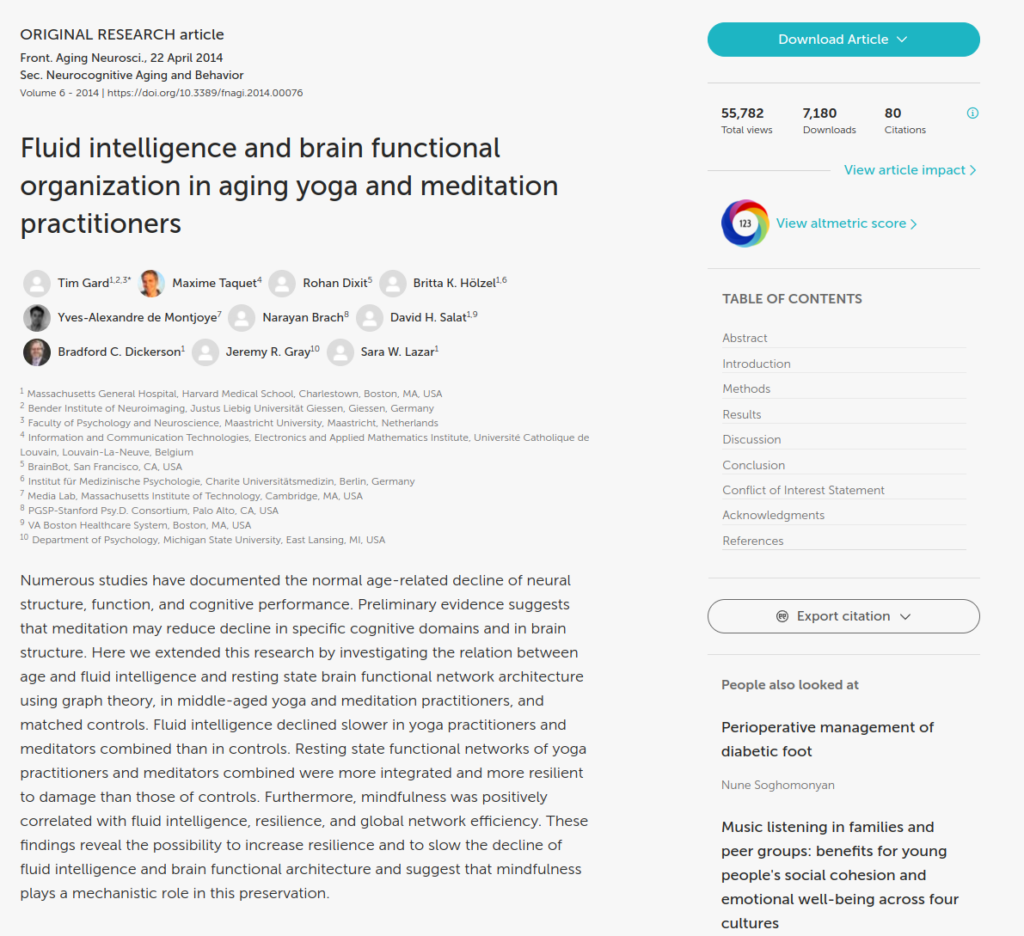Numerous studies have documented the normal age-related decline of neural structure, function, and cognitive performance. Preliminary evidence suggests that meditation may reduce decline in specific cognitive domains and in brain structure. Here we extended this research by investigating the relation between age and fluid intelligence and resting state brain functional network architecture using graph theory, in middle-aged yoga and meditation practitioners, and matched controls. Fluid intelligence declined slower in yoga practitioners and meditators combined than in controls. Resting state functional networks of yoga practitioners and meditators combined were more integrated and more resilient to damage than those of controls. Furthermore, mindfulness was positively correlated with fluid intelligence, resilience, and global network efficiency. These findings reveal the possibility to increase resilience and to slow the decline of fluid intelligence and brain functional architecture and suggest that mindfulness plays a mechanistic role in this preservation.
Fluid intelligence and brain functional organization in aging yoga and meditation practitioners
Publication
Frontiers in Aging Neuroscience
Volume 6 - 2014
Abstract
Web and Email Links
Related Listings
Journal
The Journal of Nervous and Mental Disease
A cross-sectional national telephone survey was used to determine whether Christian Scientists (N = 230), a religious group that uses mind/body (including spiritual) healing, self-report more or less illness than non-Christian Scientists (N = 589). The primary outcome measure was the proportion of Christian Scientists and non-Christian Scientists that, during the previous 12 months: a) experienced any of 13 common medical conditions or symptoms; and b) used conventional medicine, unco […]
Journal
The American Journal of Psychiatry
A framework for the integration of meditation and psychotherapy is presented through a consideration of the psychobiological nature of meditation (the relaxation response) and discussion of a traditional meditation practice (mindfulness meditation) as an effective cognitive technique for the development of self-awareness. The mechanisms by which the emotional and cognitive changes of meditation can be of therapeutic value are explored and the synergistic advantages of the combination […]
Journal
Am. J. Public Health
An experiment conducted at the corporate offices of a manufacturing firm investigated the effects of daily relaxation breaks on five self-reported measures of health, performance, and well-being. For 12 weeks, 126 volunteers filled out daily records and reported bi-weekly for additional measurements. After four weeks of baseline monitoring, they were divided randomly into three groups: Group A was taught a technique for producing the relaxation response; Group B was instructed to sit […]

